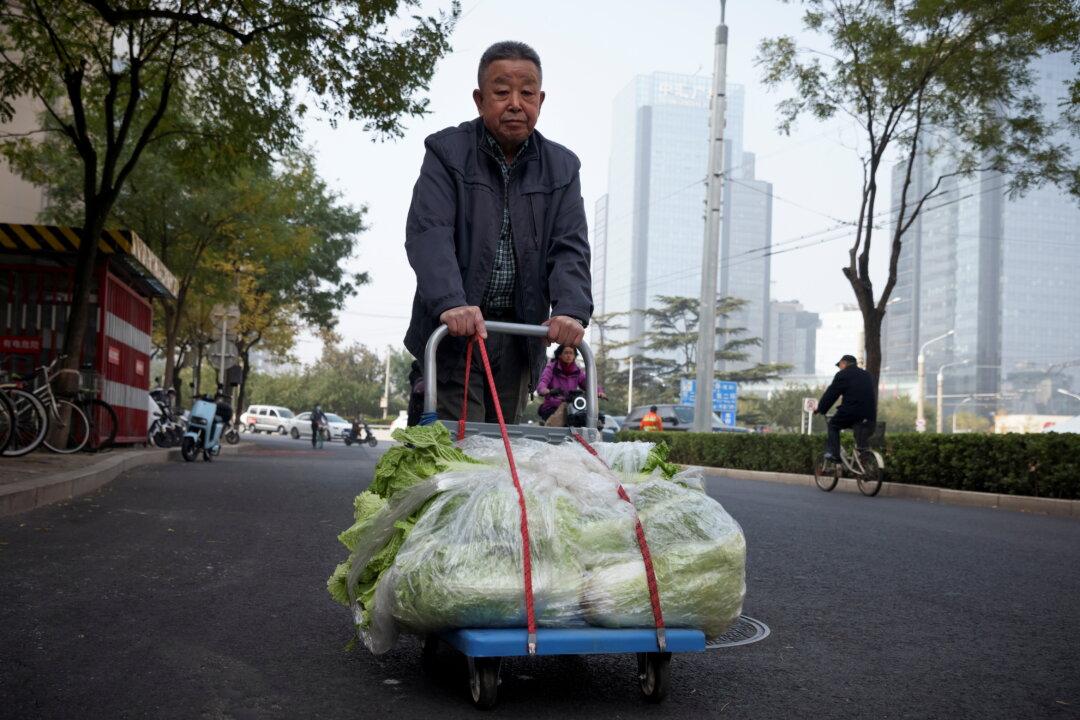Beijing residents are stocking up on cabbage after authorities issued a notice telling people to keep daily necessities in stock in case of emergencies.
Supermarkets have capped sales at three cabbages per person, but even then, shoppers arriving after 9 a.m. local time left empty-handed.




